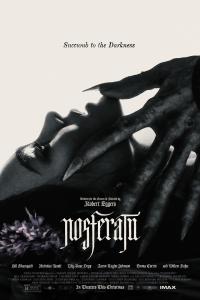Torrent details for "Smetana, Schubert - Piano Trios - Trio Bohemo (2024) [24-192]" Log in to bookmark
Controls:
Language:
 English
EnglishTotal Size:
2.75 GB
Info Hash:
c20418648cc4f4fdd659f277e502df1431be1490
Added By:
Added:
24-08-2024 08:34
Views:
140
Health:

Seeds:
12
Leechers:
3
Completed:
173

Artist: Trio Bohémo
Title: Smetana, Schubert: Piano Trios
Year Of Release: 2024
Label: SUPRAPHON a.s.
Genre: Classical
Quality: flac 24bits - 192.0kHz
Total Time: 01:17:29
Total Size: 2.74 gb
Tracklist
01. Piano Trio in G Minor, Op. 15: I. Moderato assai
02. Piano Trio in G Minor, Op. 15: II. Allegro, ma non agitato
03. Piano Trio in G Minor, Op. 15: III. Finale. Presto
04. Piano Trio No. 2 in E-Flat Major, Op. 100, D. 929: I. Allegro
05. Piano Trio No. 2 in E-Flat Major, Op. 100, D. 929: II. Andante con moto
06. Piano Trio No. 2 in E-Flat Major, Op. 100, D. 929: III. Scherzo. Allegro moderato
07. Piano Trio No. 2 in E-Flat Major, Op. 100, D. 929: IV. Allegro moderato
"I am the instrument of a higher power. With God's help and grace, I shall one day be a Liszt in technique and a Mozart as a composer." The ambitious plan in the 18-year-old composer's diary was eventually fulfilled.He was a very sought-after pianist. As a composer, he left his mark most clearly in the cycle of symphonic poems titled Ma vlast (My Country) and through chamber music in his Piano Trio and the String Quartet "From My Life"; those three works reflect tragic episodes in Smetana's life. The Trio in G minor, one of the gems of 19th-century chamber music, was written in under three months of 1855 as an outgrowth of the composer's immense sorrow over the death of his daughter. Smetana's emotionally gripping trio is heard on the album together with one of the most important chamber works of the romantic era, Schubert's monumental Piano Trio in E flat major (1827). This masterpiece was likewise written by a 30- year-old composer, but it is also one of Schubert's last completed works; at the time, Schubert had only a year of life remaining. The ensemble reaching the depths of the two composers' music on their debut album is the youthful Trio Bohemo, who have been appearing for several years with great success at prestigious competitions and on concert stages around the world (London's Wigmore Hall, Vienna's Musikverein), usually with programmes combining Czech and foreign repertoire. There is yet another important name behind the recording: the late Hatto Beyerle, a founding member of the Alban Berg Quartet, who coached the young ensemble in both works and set them on the path towards their own individual interpretation, seeking the meaning hidden behind the musical notation.










































